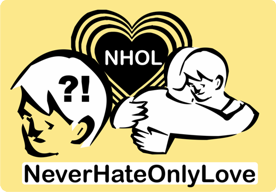What if everything you’ve heard about income inequality is wrong? What if it’s actually a good thing for there to be people who are rich and people who aren’t? John Tamny, editor of RealClearMarkets, clarifies one of the big misunderstandings of our time. Donate today to PragerU!
Joining PragerU is free! Sign up now to get all our videos as soon as they’re released.
Download Pragerpedia on your iPhone or Android! Thousands of sources and facts at your fingertips.
iPhone:
Android:
Join Prager United to get new swag every quarter, exclusive early access to our videos, and an annual TownHall phone call with Dennis Prager!
Join PragerU’s text list to have these videos, free merchandise giveaways and breaking announcements sent directly to your phone!
Do you shop on Amazon? Click and a percentage of every Amazon purchase will be donated to PragerU. Same great products. Same low price. Shopping made meaningful.
VISIT PragerU!
FOLLOW us!
Facebook:
Twitter:
Instagram:
PragerU is on Snapchat!
JOIN PragerFORCE!
For Students:
JOIN our Educators Network!
Script:
There has been a lot said and a lot written about income inequality – about how unfair it is that a few people are very rich and the rest of us aren’t; that the income gap between the wealthy and even the middle-class, let alone the poor, is so large.
There’s only one problem with this complaint.
It’s wrong.
Income inequality is actually a good thing — when it is the product of a free market economy.
And your own life proves it!
An economy is made up of millions of individuals making decisions about their own lives – where and how much they want to work, what they want to buy, and so on.
You are one of those individuals.
In a country like the United States, you are free to pursue a path in life that you believe best suits your talents. That talent might be teaching, or making music, or banking, or starting a small business, or raising a family. Whatever it is, this freedom helps to make life enjoyable, exciting and meaningful.
But it’s also an expression of inequality. This is simply because we’re all different. We have different talents, different temperaments, different ambitions.
That’s okay because – again in a free society – we can seek out opportunities that play to our personal strengths; that distinguish us from others.
If you find what you’re really good at and work hard, you might have great success and make a lot of money. If you’re an outstanding athlete, I’ll buy a ticket to see you play. If you’re a savvy investor, I’ll give you some of my money to invest.
As long as you have the freedom to guide your own destiny, you have a chance to reach your full potential – achieving success, however you define it. But if someone, say, a government bureaucrat, told you that your ambition had limits, that there was a ceiling above which you could not rise, I doubt you’d be happy about it. You’d feel like you were in a straightjacket.
Forced equality means less opportunity to pursue what makes you individually great..
But what about the growing gap between the rich, the 1%, and the rest of us, the 99%, that one hears so much about? Isn’t that a bad thing?
Again, the answer is no.
Here’s why:
In a free market economy people become wealthy making what the rich enjoy today into something almost everybody can enjoy tomorrow. The rich are the test buyers.
Consider the cell phone. Now we all have them, but when Motorola manufactured the first one in 1983 it was the size of a brick, had a half-hour of battery life, reception was terrible, and calls were very expensive. It cost $4000. But if no one had bought that $4000 brick, there wouldn’t be a $40 cell phone today.
In the 1960’s a computer cost over a million dollars. Nowadays, thanks to billionaires like Michael Dell, we have incredibly advanced computers that cost us a few hundred dollars.
Remember what an out-of-reach luxury flat screen TV’s once were? Only the rich could afford them. Today your living room is essentially your own private cinema.
The free market is about turning scarcity into abundance. What was once available to the few is now available to the many. Wealth inequality is an important corollary to that truth.
For the complete script, visit
source








